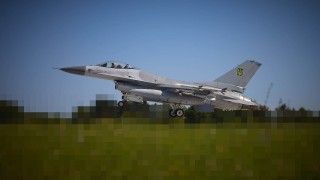- WIADOMOŚCI
- WYWIADY
Georgia on the frontline of Hybrid War
As tensions escalate in Eastern Europe, Georgia stands at a critical crossroads—caught between Western integration and persistent Russian pressure. Ambassador Shota Gvineria, with deep experience in diplomacy and defense, unpacks the country’s unique security challenges. From cyber threats to regional instability, he offers insights into how Georgia navigates an increasingly complex threat landscape. This conversation also highlights the strategic role of the Black Sea and why Georgia’s experience matters for Europe’s future.

Interview conducted by Dr. Aleksander Olech (A.O) with Amb. Shota Gvineria (S.G), a Defence and Cyber Studies lecturer at the Baltic Defence College since 2019 and a non-resident fellow at the Economic Policy Research Center since 2017. He previously held key roles in Georgia’s public sector, including Deputy Secretary of the National Security Council, Foreign Policy Advisor to the Minister of Defence, and Ambassador to the Netherlands (2010–2014). He holds MAs in Strategic Security Studies from the National Defence University in Washington, International Relations from the Diplomatic School of Madrid, and Public Administration from the Georgian Technical University. His expertise includes hybrid warfare, cyber defense, Russian foreign and security policy, Black Sea security, and the Eastern Partnership region.
A.O.: How do the Georgian political elites perceive the war in Ukraine and the country’s security prospects after the conclusion of peace talks between the West and Russia?
Georgian political elites are deeply divided in their perception of the war in Ukraine. While the ruling Georgian Dream regime initially maintained a pro-Western facade, the outbreak of the war in 2022 exposed its alignment with Russian interests. Under pressure to take a stance, the government refrained from supporting Ukraine unequivocally and instead adopted a rhetoric echoing Kremlin narratives. This shift sparked outrage among Georgia’s largely pro-Western public and opposition parties, many of which have expressed strong solidarity with Ukraine. The ruling regime has since intensified a propaganda campaign that frames support for Ukraine as a path to war with Russia, while simultaneously delivering contradictory messages about Georgia’s European aspirations to scare and confuse the public.
Georgia’s ruling regime view the country’s security prospects through the lens of strategic isolation. The Georgian Dream leadership has deliberately distanced Georgia from international security discussions, aligning the country more closely with anti-democratic forces. As new security arrangements take shape in response to the war in Ukraine, Georgia is conspicuously absent—excluded not by accident, but by design. Government rhetoric that blames Georgia for starting the war against Russia in 2008 echoes Kremlin narratives. This stance not only helps reinforce the image of Georgia as part of Russia’s rightful sphere of influence but also weakens legitimacy and arguments for Georgia’s territorial integrity. Whether Ukraine secures a strong deal or makes painful concessions, Georgia stands to lose under both scenarios. By isolating itself from democratic allies and rejecting international legitimacy, the current government is putting Georgia’s sovereignty and long-term stability at serious risk.
A.O.: What is the current state of Polish-Georgian relations?
While Poland has traditionally been a strong advocate for Georgia’s European and Euro-Atlantic integration, recent developments indicate a shift in its engagement. Polish officials have expressed concern over Georgia’s democratic backsliding, particularly following the October 2024 parliamentary elections. The Polish Ministry of Foreign Affairs issued a statement highlighting irregularities in the electoral process and emphasizing that such actions move Georgia further away from the EU and NATO aspirations. Additionally, in a joint statement with France and Germany, Polish Foreign Minister Radosław Sikorski condemned the Georgian government’s use of force against peaceful protesters and the suppression of opposition voices. The statements underscored that the political course taken by Georgia’s ruling party has led to a downgrading of relations at both European and national levels.
Beyond official statements, Polish Georgian relations are currently marked by noticeable silence and distance. After years of being one of Georgia’s most vocal supporters on its European and Euro-Atlantic path, Poland has taken an unusually passive stance amid Georgia’s rapid democratic backsliding. Despite formal diplomatic exchanges and occasional statements of concern, there has been little visible engagement or public diplomacy. Unlike some other strategic partners, Poland has also been cautious in pushing for concrete consequences, such as sanctions against Georgian officials involved in democratic erosion, corruption, or human rights violations. This restrained approach reflects a broader pattern of Georgia-Polish relations, raising questions about how Tbilisi is currently perceived by its international partners.
A.O.: Could you describe Georgia’s perception of its international partners? Does the trend of aspiring to NATO and the European Union still exist in Tbilisi, or is there a preference for bilateral partnerships, for example, with the USA, Turkey, or India?
Georgia’s perception of its international partners is now shaped by a sharp contrast between government and society. While the Georgian public remains overwhelmingly pro-Western and hopeful for stronger support from allies, the ruling elite faces increasing isolation. Strategic partners such as the U.S., UK, and Baltic states have imposed sanctions on key Georgian officials and suspended bilateral programs, citing democratic backsliding and human rights violations. The U.S. has even begun reassessing its strategic partnership with Georgia. However, these actions have so far failed to alter the regime’s anti-democratic behavior. The growing dilemma for international partners lies in pressuring the government without abandoning Georgian society. As the regime’s isolation deepens, so does the risk of Georgia as a whole slipping from Western focus—an outcome that benefits both the ruling regime and its backers in Moscow.
The aspiration to join NATO and the European Union remains deeply rooted in Georgian society, but the current regime has stalled any real progress toward that goal. Massive public rallies continue to demonstrate strong grassroots support for EU integration and a Western future. However, under the Georgian Dream regime, this strategic orientation has become utopian. While the authorities continue to invoke European aspirations in official rhetoric, they consistently undermine democratic fabric and alienate Western allies. At the same time, the only partnerships the ruling regime actively seeks to enhance are with authoritarian peers, most notably Russia, China, and Iran. This drift away from democratic partners toward illiberal regimes signals a sharp departure from Georgia’s long-standing foreign policy trajectory and leaves the country extremely vulnerable to internal and external threats.
A.O.: What threats do Russia’s actions in the Black Sea region pose to Georgia, Ukraine, and NATO member states?
Moscow has transformed the Black Sea into a strategic hub for projecting military power. Still, the Black Sea remains a critical arena where Russia wages hybrid war, disrupts trade, and pressures NATO’s eastern flank—posing ongoing challenges not only to its immediate neighbors but to the security architecture of the entire Euro-Atlantic space. NATO member states, especially those bordering the Black Sea like Romania and Bulgaria, are increasingly vulnerable to Russia’s hybrid tactics, including cyberattacks, disinformation campaigns, and the militarization of energy routes.
Russia’s actions in the Black Sea region pose significant threats to Georgia, Ukraine, NATO member states and beyond. For years, Western stakeholders treated the region as peripheral, failing to prioritize it as a strategic front. This indecisiveness created a power vacuum that Russia was quick to exploit—using coercion, destabilization, and military build-up to gradually expand its influence. The establishment of a naval base in occupied Abkhazia is a clear example of how Georgia remains a key target in this effort, with Moscow seeking to entrench its presence and threaten regional security.
In Ukraine, the full-scale invasion marked what was intended to be the culmination of Russia’s project to reassert dominance over former Soviet states. However, this goal was thwarted by Ukraine’s extraordinary resistance, which prevented Moscow from achieving a decisive victory. Ukraine faces continuous aggression, with Russia utilizing the Black Sea to launch attacks on critical infrastructure and disrupting global trade and food security.
A.O.: How is the situation in the Caucasus perceived in Georgia, and how does it shape Tbilisi’s regional and foreign policy concepts?
Georgia’s perception of the South Caucasus has become increasingly fragmented, reflecting a shift away from strategic regional engagement toward political survivalism. Following the highly contested 2024 elections, only neighboring states extended congratulations to the ruling regime, providing the kind of questionable legitimacy the government actively seeks. This diplomatic isolation highlights Georgia’s diminished role in the region. Once seen as a democratic foothold and a reliable partner for the West in a complex geopolitical space, Georgia has lost that standing under the Georgian Dream government.
Lacking a clear international orientation and pursuing increasingly inward-looking policies, the regime has alienated its traditional democratic allies while failing to build meaningful regional alliances. Attempts to reposition Georgia regionally have stalled, in part because South Caucasus remain under strong Russian influence. Russian interests largely contradict with those of other regional stakeholders, especially Georgia’s vital interests such as sovereignty, territorial integrity and independence. In this environment, Georgia’s foreign policy lacks coherence, and its capacity to shape regional dynamics has significantly eroded.
A.O.: Does the potential weakening of the Russian Federation in Eastern Europe and the Caucasus raise hopes for a return to the pre-2008 status quo, meaning the factual and legal reintegration of South Ossetia and Abkhazia within Georgia’s borders?
Under the current regime, Georgia has lost the capacity to effectively pursue its national interests, regardless of how the war in Ukraine ends. The government’s lack of strategic clarity and its distancing from Western institutions and values have left Georgia without meaningful representation at the tables where its future could be decided. Even if Russia were to be weakened and forced into concessions, Georgia has no credible voice in those negotiations. Conversely, if Russia emerges as a geopolitical victor, Georgia’s drift into Moscow’s sphere of influence will only accelerate.
The reintegration of South Ossetia and Abkhazia, already a distant goal, has become even less attainable due to the ruling party’s foreign policy failures. By isolating Georgia from its democratic allies and hollowing out its international credibility, the Georgian Dream has placed the country in a lose-lose scenario. It is excluded from decision-making if Russia is weakened and vulnerable to domination if Russia consolidates its gains. Without a drastic course correction, Georgia risks being permanently sidelined in the regional order.
The Georgian Dream government has long pursued a narrative that shifts blame for the 2008 war onto former President Saakashvili. Now, with the establishment of a parliamentary commission aimed at officially declaring Georgia as the aggressor, this rhetoric is being dangerously institutionalized. If this position is formalized, it will have serious legal and diplomatic consequences: Georgia will no longer be able to claim that Abkhazia and South Ossetia are occupied territories, since occupation, by international law, presumes unlawful military presence on a sovereign state’s territory. By accepting culpability for the war, the government is effectively discrediting Georgia’s long-standing legal position and undermining any future claims for reintegration of these territories. This move not only rewrites history in favor of Russian propaganda but also jeopardizes Georgia’s national interests and territorial integrity in the international arena.
Thank you for the conversation.















